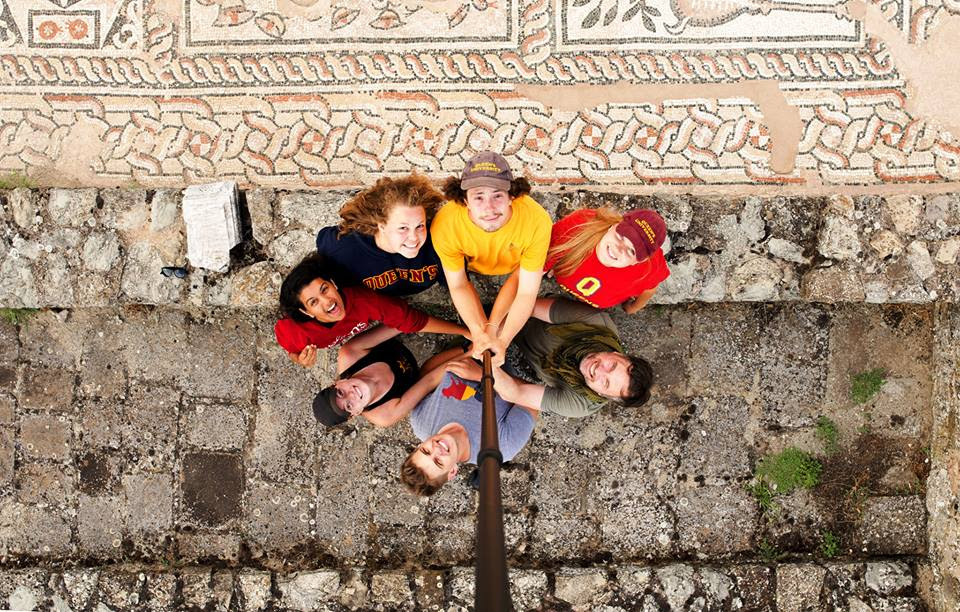
Fostering international scholarship, education, and cultural dialogue.
CAORC funding opportunities are now available!
NEH Senior Research Fellowship Program
The CAORC National Endowment for the Humanities Senior Research Fellowship Program supports advanced research in the humanities for US postdoctoral scholars, and foreign national postdoctoral scholars who have been residents in the US for three or more years. Fellowship stipends are $4,200 per month for a total of four months.
Eligibility
Applicants must:
- carry out research in a country which hosts a participating American overseas research center. Eligible countries for 2018 are: Algeria, Armenia, Azerbaijan, Cambodia, Cyprus, Georgia, Indonesia, Mexico, Mongolia, Morocco, Nepal, Senegal, Sri Lanka or Tunisia;
- be postdoctoral scholars;
- be US citizens or foreign nationals who have been residents in the US for three years prior to the application deadline.
Applications
Applications for the NEH Senior Research Fellowship Program are now available at orcfellowships.fluidreview.com.
The deadline for submissions is January 31, 2018 and announcements are expected to be made by the end of April 2018. More information can be found here.
Multi-Country Research Fellowship Program
The CAORC Multi-Country Research Fellowship Program supports advanced regional or transregional research in the humanities, social sciences, or allied natural sciences for US doctoral candidates and scholars who have already earned their PhD. Preference will be given to candidates examining comparative and/or cross-regional research. Scholars must carry out research in two or more countries outside the US, at least one of which hosts a participating American overseas research center. Approximately eight awards of up to $10,500 each will be given each year.
Eligibility
Applicants must:
- be a US citizen. Proof of citizenship (photocopy of passport) must be shown upon award notification;
- have a PhD or be a doctoral candidate who has completed all PhD requirements with the exception of the dissertation;
- be engaged in the study of and research in the humanities, social sciences, and allied natural sciences;
- seek to conduct research of regional or trans-regional significance in two or more countries outside the US, one of which must host a participating American overseas research center (AORC). Please note travel is currently restricted by the U.S. Department of State to the following AORC countries: Afghanistan, Bangladesh, Iraq, Pakistan (senior scholars may be permitted to travel to Lahore and Islamabad subject to approval), and Yemen.
Applications
Applications for the Multi-Country Research Fellowship Program are now available at orcfellowships.fluidreview.com.
The deadline for submissions is January 31, 2018 and announcements are expected to be made by the end of April 2018. More information can be found here.
Responsive Preservation Initiative for Cultural Heritage Resources
Supported by the J.M. Kaplan Fund, CAORC is pleased to announce the new Responsive Preservation Initiative (RPI) for Cultural Heritage Resources. The RPI program is designed to fund projects for urgent, emergent, or priority issues that need to be addressed quickly. Small grants are available for rapid emergency projects in Algeria, Cyprus, Egypt, Greece, Iraq, Israel, Jordan, Libya, Morocco, The Palestinian Territories, Tunisia, Turkey, and Yemen.
Eligibility
- Professionals working to preserve archaeological sites and related CHRs in countries where permanent American overseas research centers’ networks exits are encouraged to apply. Individuals or teams may apply for funding. Biographies for all team members must be included in the proposal.
- Proposed projects should address urgent, emergent, or priority issues that need to be addressed quickly.
- Projects must propose a time-bound intervention in one of the following countries: Algeria, Cyprus, Egypt, Greece, Iraq, Israel, Jordan, Libya, Morocco, The Palestinian Territories, Tunisia, Turkey, and Yemen.
Applications
Applications will be considered on a rolling basis. Apply now by clicking here .
CAORC Member Centers represent the following countries:
Afghanistan, Algeria, Armenia, Azerbaijan, Bangladesh, Cambodia, Cyprus, Egypt, Georgia, Greece, India, Indonesia, Iran, Iraq, Israel, Italy, Jordan, Mexico, Mongolia, Morocco, Nepal, Pakistan, Palestine, Senegal, Sri Lanka, Tunisia, Turkey, and Yemen


 2018-19 FELLOWSHIPS IN EGYPT
2018-19 FELLOWSHIPS IN EGYPT







